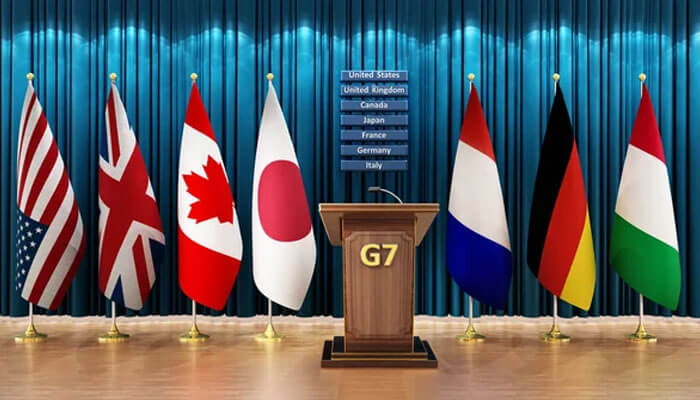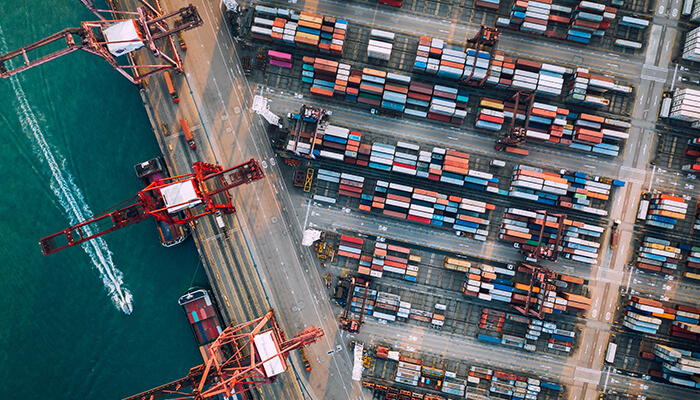G7 Rejects China’s “Economic Coercion” and Calls for De-Risking
Numerous types of storage facilities are available in every province in the country. Storage facilities that are both public and private and come in a variety of sizes may be used by governmental organizations, private companies, NGOs, and even G7-level enterprises requiring large-scale logistics support. These storage facilities may be rented out or used, depending on space. If there are any urgent needs, it is possible to contact a real estate professional to locate a suitable warehouse based on specifications. These people are actively looking for rental space.
When China halted shipments to Lithuania after the Baltic nation permitted Taiwan to establish a de facto embassy there, the European Union became especially concerned.
The G7’s condemnation of what they regard as a “disturbing rise” in the “weaponization of economic vulnerabilities” is therefore not surprising.
According to them, this coercion aims to “undermine the foreign and domestic policies and positions of G7 members as well as partners around the world”.
The G7’s Demand for “De-Risking”
They demanded “de-risking,” a strategy Ms. von der Leyen, who is in attendance at the meeting, has backed. This is a more moderate version of the US’s “decoupling” from China proposal, wherein they would use more forceful diplomatic language, diversify their trading partners, and safeguard commerce and technological innovation.
To combat the coercion and collaborate with rising economies, they have also established a “coordination platform”. While the specifics of how this would operate are still unclear, it is expected that nations will support one another by boosting trade or funding to get around any barriers China may erect.
The G7 also has plans to improve digital infrastructure to deter hacking and technology theft, as well as supply lines for vital products like semiconductors and minerals.
Challenges with Multilateral Export Controls
But multilateral export controls will be their biggest hurdle. This entails cooperating to prevent “malicious actors” from using their technologies, especially those utilised in the military and intelligence.
To combat the coercion and collaborate with rising economies, they have also established a “coordination platform”. While the specifics of how this would operate are still unclear, it is expected that nations will support one another by boosting trade or funding to get around any barriers China may erect.
The G7 also has plans to improve digital infrastructure to deter hacking and technology theft, as well as supply lines for vital products like semiconductors and minerals.
But multilateral export controls will be their biggest hurdle. This entails cooperating to prevent “malicious actors” from using their technologies, especially those utilised in the military and intelligence.
By claiming that their actions “are not intended to harm China” and that they “do not seek to obstruct China’s economic progress and development,” they attempted to appease Beijing. They were “not decoupling or inwardly turning.”
The Debate Over ‘De-Risking’ and Technology Export Restrictions
However, they also put pressure on the Chinese to cooperate, claiming that a “growing China that plays by international rules would be of global interest”.
They also demanded “candid” engagement, indicating their desire to maintain open lines of contact in a sensitive situation while yet being able to convey their concerns to China.
We won’t be aware of how Chinese diplomats and leaders will interpret the G7 statement in private. State media, however, has previously retaliated against the West for attempting to have it both ways by denouncing China while simultaneously taking advantage of their mutually beneficial economic relationship.
Beijing has decided to continue using its customary irate language in its public discourse for the time being.
According to Dr. Small, a senior transatlantic fellow with the German Marshall Fund think tank, “there are still significant debates playing out around what ‘de-risking’ actually means, how far some of the sensitive technology export restrictions should go, and what sort of collective measures need to be taken against economic coercion.”
But there is now a distinct and explicit framework for how the advanced industrial economies need to rebalance their economic relations with China.




